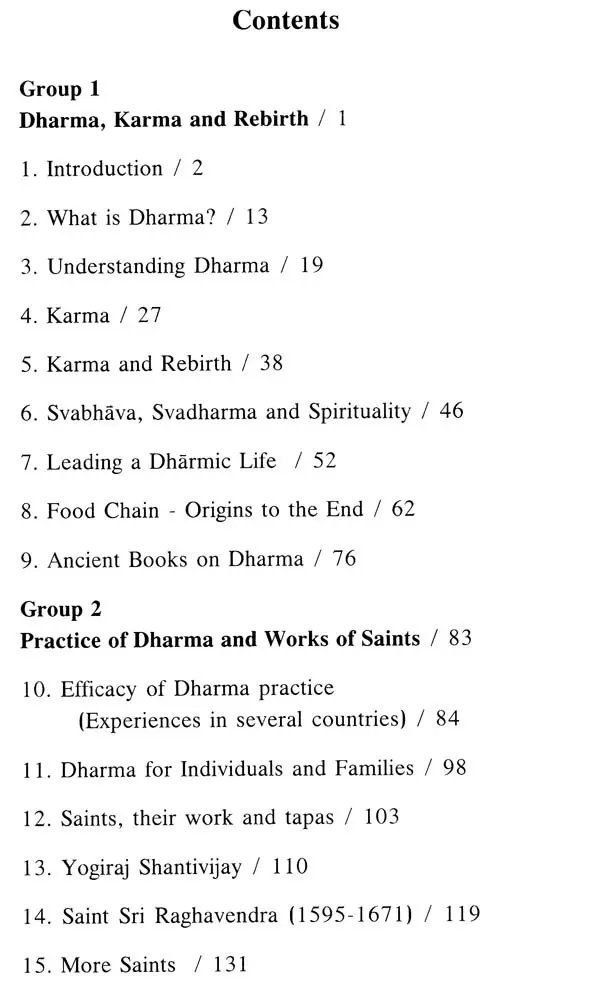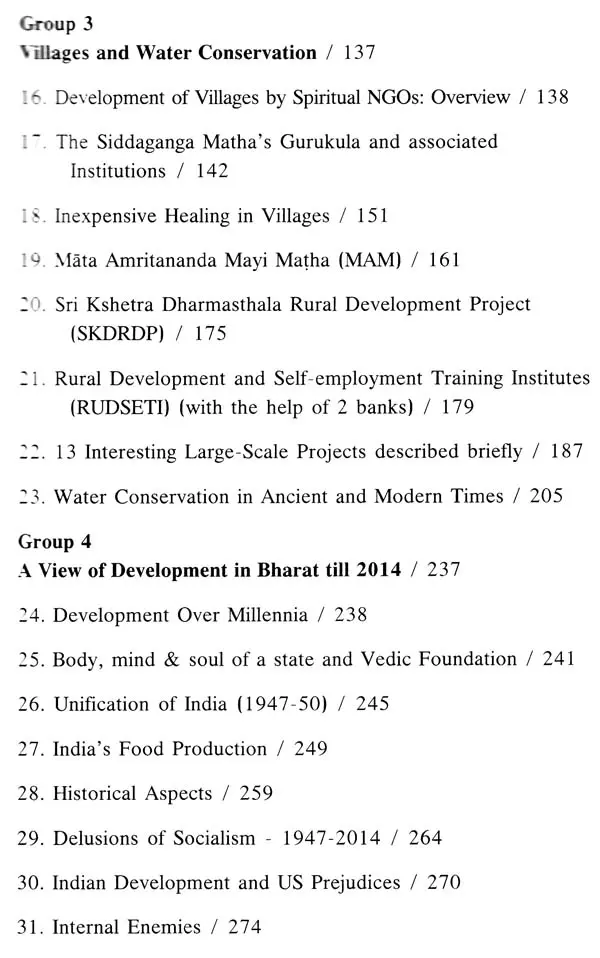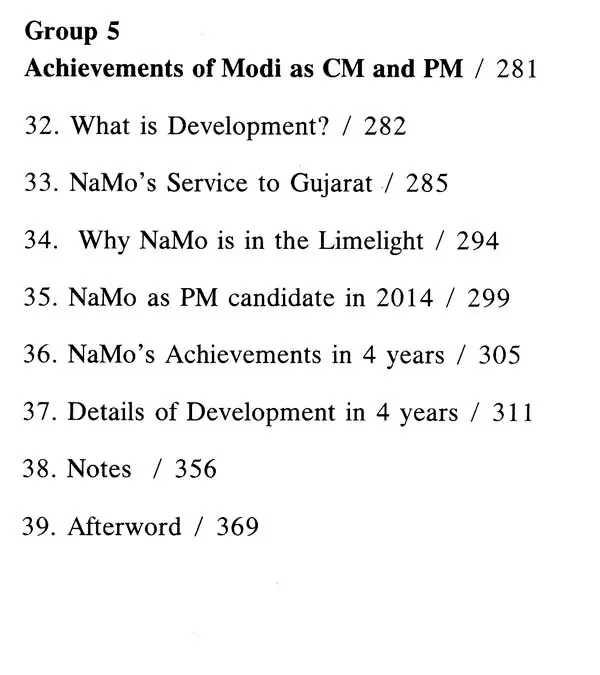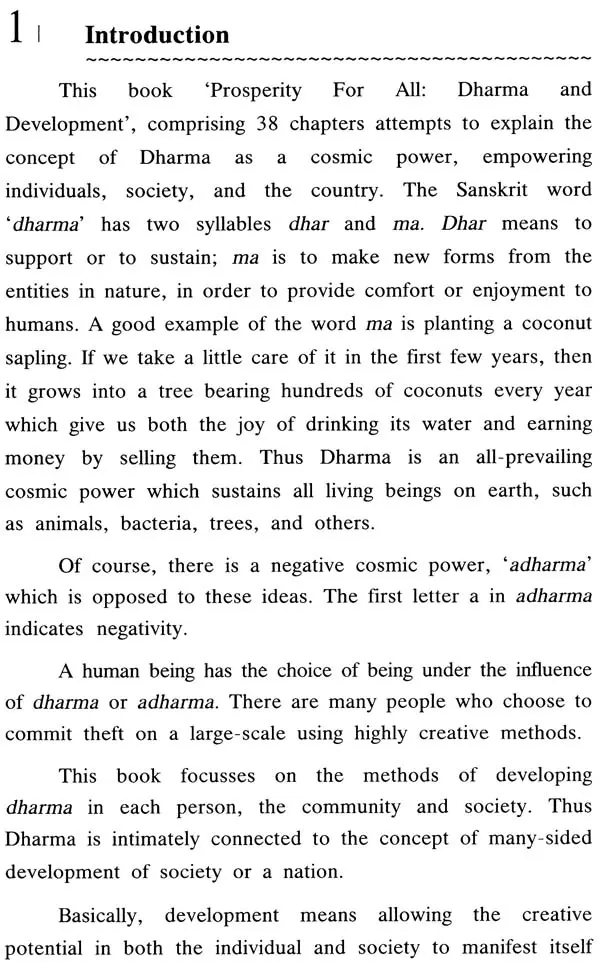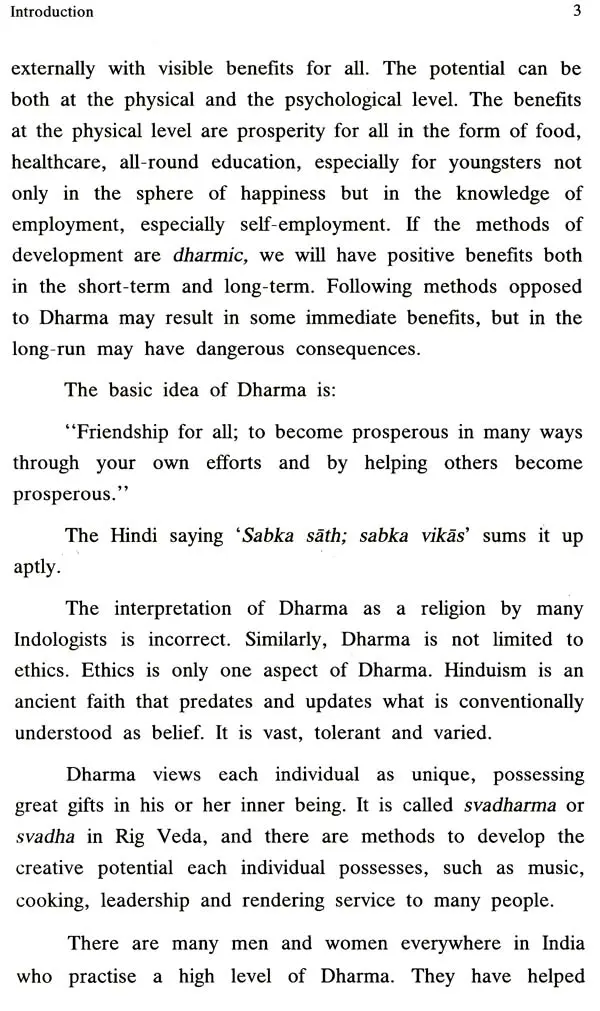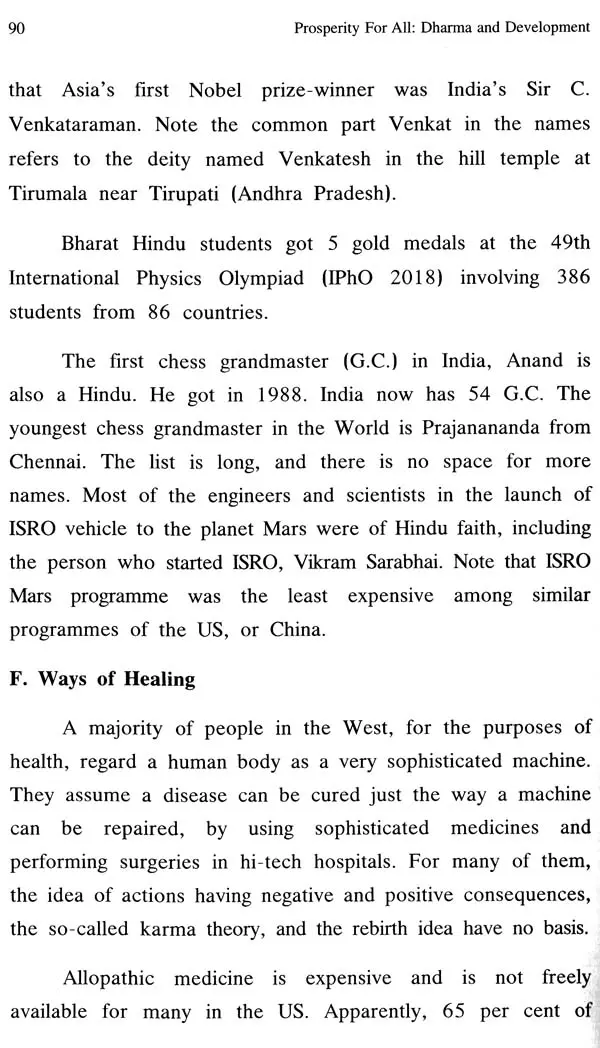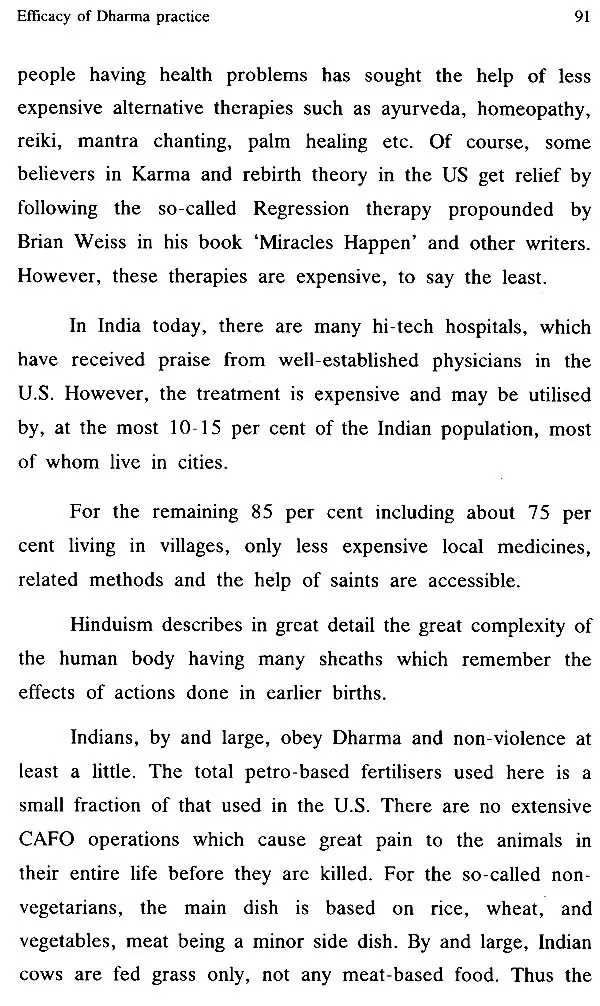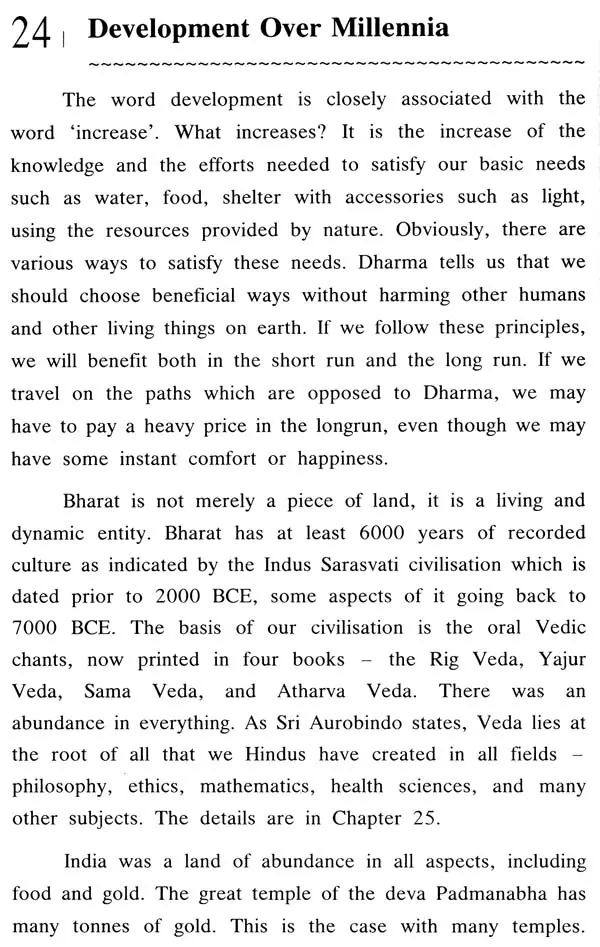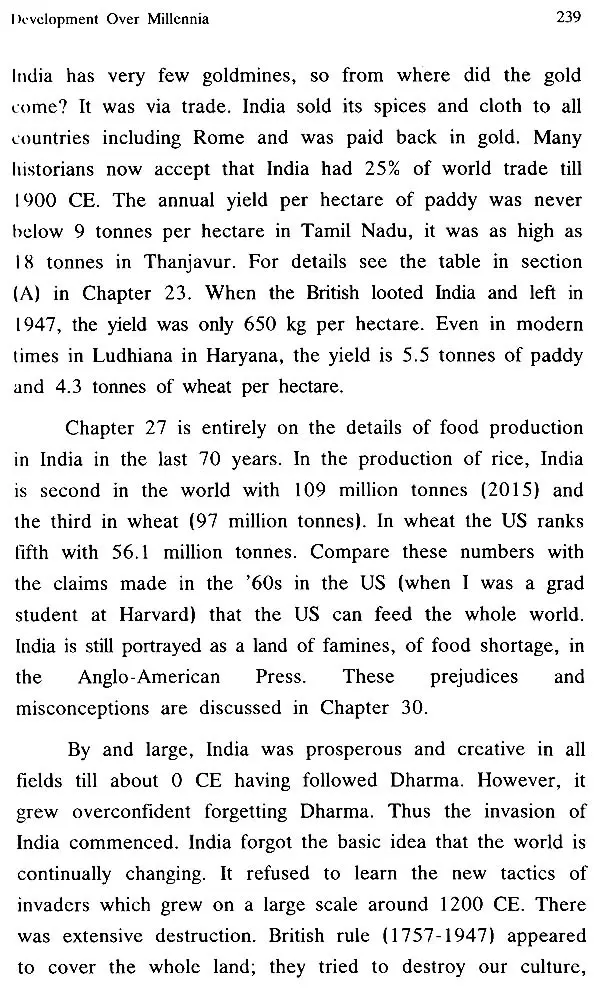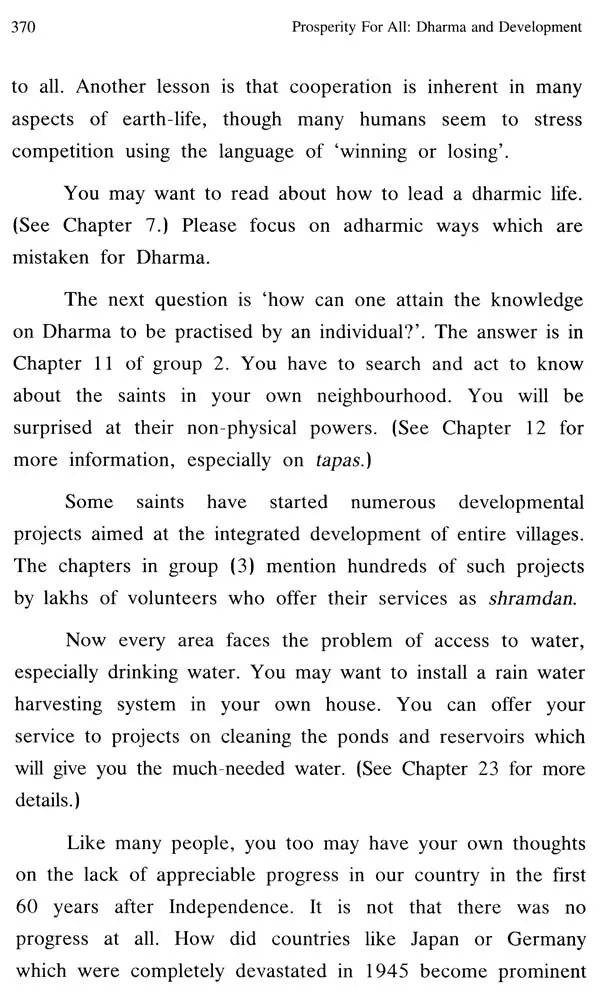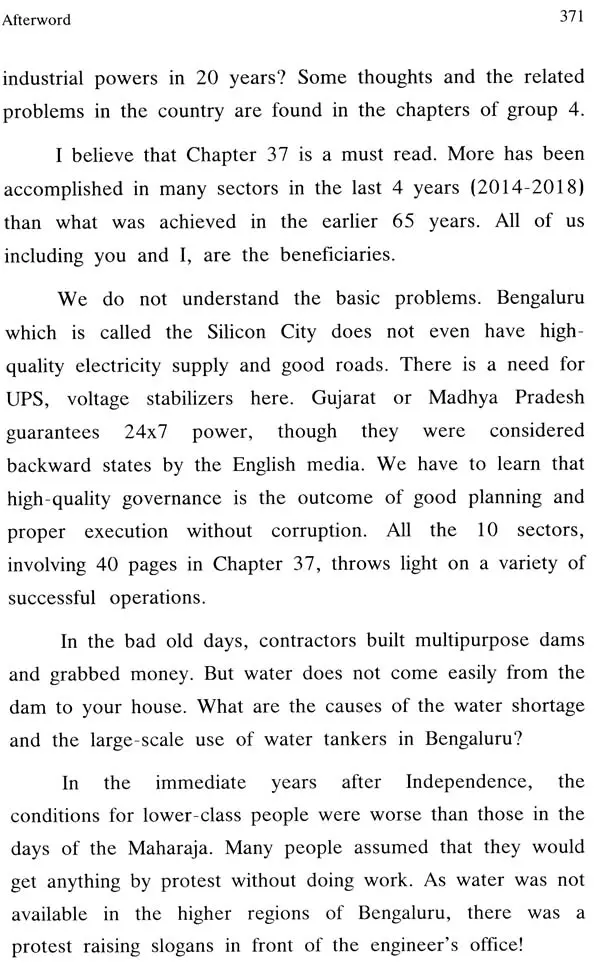
Dharma and Development: Prosperity for All
Book Specification
| Item Code: | UAJ421 |
| Author: | R. L. Kashyap |
| Publisher: | Auro Nada, Bengaluru |
| Language: | English |
| Edition: | 2019 |
| ISBN: | 97881179941812 |
| Pages: | 372 |
| Cover: | PAPERBACK |
| Other Details | 8.50 X 5.50 inch |
| Weight | 450 gm |
Book Description
The book in your hand "Dharma and Development - Prosperity for All" is an invaluable work which emerged out of the vast study of Dr. RL Kashyap. He has made a pioneering contribution to the field of Vedic Knowledge. Dr. R L Kashyap inspired by the vision of Rishis, reveals to the readers the core of Dharma and its application. The variety of examples on all aspects of life, narrated in this book are eye-openers. He has succeeded in convincing us that Dharma is the foundation for all development and prosperity.
His background in Mathematics and Engineering has worked so well in conveying the subject matter in such a way that he finally proves what he wanted to establish.
Indeed this book is a valuable contribution to the present and future generation to come.
This book is the outcome of Dr. R L Kashyap's concern towards the comprehensive development.
The present work "Prosperity For All: Dharma and Development" is an investigation into the fundamental values that distinguish mere 'growth' from 'Development'. Dr. Kashyap defines this process of development to implicit in the Indian concept of 'Dharma' and the richness and universality of this concept. Swami Siddeshwarananda, a monk of the Sri Ramakrishna Order who lived in France for many years, in his "Carmelite Mysticism And Hindu Thought" makes a profound observation that religions often raise provocative slogans which produce discord and conflict while the word 'spirituality' could better convey the spirit of the universality of all mystic experience.
I realised that Dharma is the main force which enables the development of individuals and of their nation allowing the creativity of the individuals to manifest fully in several sectors. But the development has not been visible in countries like India because of the negative forces of adharma such as the Leftists' idea of a top-down approach which believes in the state owning everything belittling the creativity of individual human beings.
Therefore, on the one hand, we see that the sectors in India controlled via the top-down approach of the government have given very little help to the common citizen.
On the other, the non-governmental institutions (NGOs) headed by persons driven by spiritual ideas and ethics have extraordinary achievements to their credit especially in the rural areas. The first person to develop NGOs catering to rural life on a large scale is Dr. V. Kurien via his Amul Cooperatives in 1958.
**Contents and Sample Pages**

